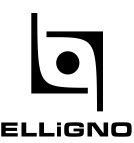DamBreak++: A Modern C++ Scientific Simulation Framework
DamBreak++ Simulation Framework Overview DamBreak++ simulation framework is built with modern C++, designed to accelerate the development of physics-based algorithms. It leverages object-oriented design and abstraction layers to provide reusable components, enabling developers to implement new algorithms with minimal effort. This framework contains basic building blocks to solve numerically the One-dimensional St-Venant equations corresponding to the […]
Programming Physics Algorithm Using DamBreak++
DamBreak++ Simulation Framework The framework I have developed is essentially a collection of C++ classes organized in libraries. This framework implemented contains basic building blocks for the numerical solution, corresponding to the explicit conservative finite difference (based on finite volume discretization). The code uses inheritance to group similar data structures and procedures into families that […]
Programming Physical Algorithm That Simulates Dam-Break Wave
Introduction DamBreak++ wave simulator is a programming environment designed to accelerate the prototyping phase in the validation of numerical algorithms on the so-called Dam Break problem. The software architecture is based on an Object-Oriented framework with a layer of abstract types by which it is possible to extend user applications. A particularly attractive feature is the […]
Refactoring Legacy Code Using Object-Oriented Numeric
Introduction The migration project of the numerical library to modern C++20 is completed, and I am working on the validation of the physics algorithms. I started the rafctoring of legacy code, and I want to share a design or a prototype. The original version of the code was written with the C-function approach; the new […]
Scientific MetaProgramming In Modern C++
Metaprogramming Template metaprogramming (TMP) is a metaprogramming technique in which templates are used by a compiler to generate temporary source code. (Wikipedia) Scientific Programming Meta programming is becoming more popular with the new features added to C++14/17 (trait library). Many physics libraries use this technique where efficiency is especially important or crucial. A good reference to learn the basics […]
Scientific Modern C++ Features for Scientific Programmer
Scientific Modern C++ Scientific Modern C++ is the application of Modern C++ new programming techniques in developing scientific software applications. Scientific Modern C++ added new features (language upgrade) and many of these newly introduced features can be applied in the development of scientific applications. Scientific application demands efficiency and flexibility, and the new features of […]
“Modern C++ Scientific Data Type Use case “
Scientific Data Type(scalar field) Our scientific programming environment supports many scientific data types such as scalar field, vector field, tensor and so on, usual mathematical types used in scientific programming. Recently I started to refactor scalar field using Modern C++20 features (particularly ‘Range’ library). I thought it would be a good example to show how […]
DamBreak++ Physics Simulator Upgraded to Modern C++
DamBreak++ Physics Simulator Just completed the first version of the DamBreak++ physics simulator now supporting C++17/20. Many bugs are fixed and validation test completed successfully. A re-factoring has been done and is still ongoing. This required a big effort to make it done. Lot of prototypes were developed over the years, and I had to […]
Scientific Programming Using Modern C++ Features
Scientific Programming Modern C++ Scientific programming using Modern C++ requires a new way of thinking about programming, at first sight it may often be more abstract and more difficult to understand than conventional codes. Adopting these new features means not only learning a whole programming style but learning new unfamiliar features as well. I’m currently […]
Some Thoughts About Modern C++ in Scientific Programming
Perfect forwarding (Modern C++) In the refactoring project I’m currently working, I prototype many implementations and lately I’ve been testing the use of perfect forwarding (Modern C++ feature) in our scientific programming environment. The reason is that some of the legacy code I started from used functions with different signatures. As the name perfect forwarding […]
